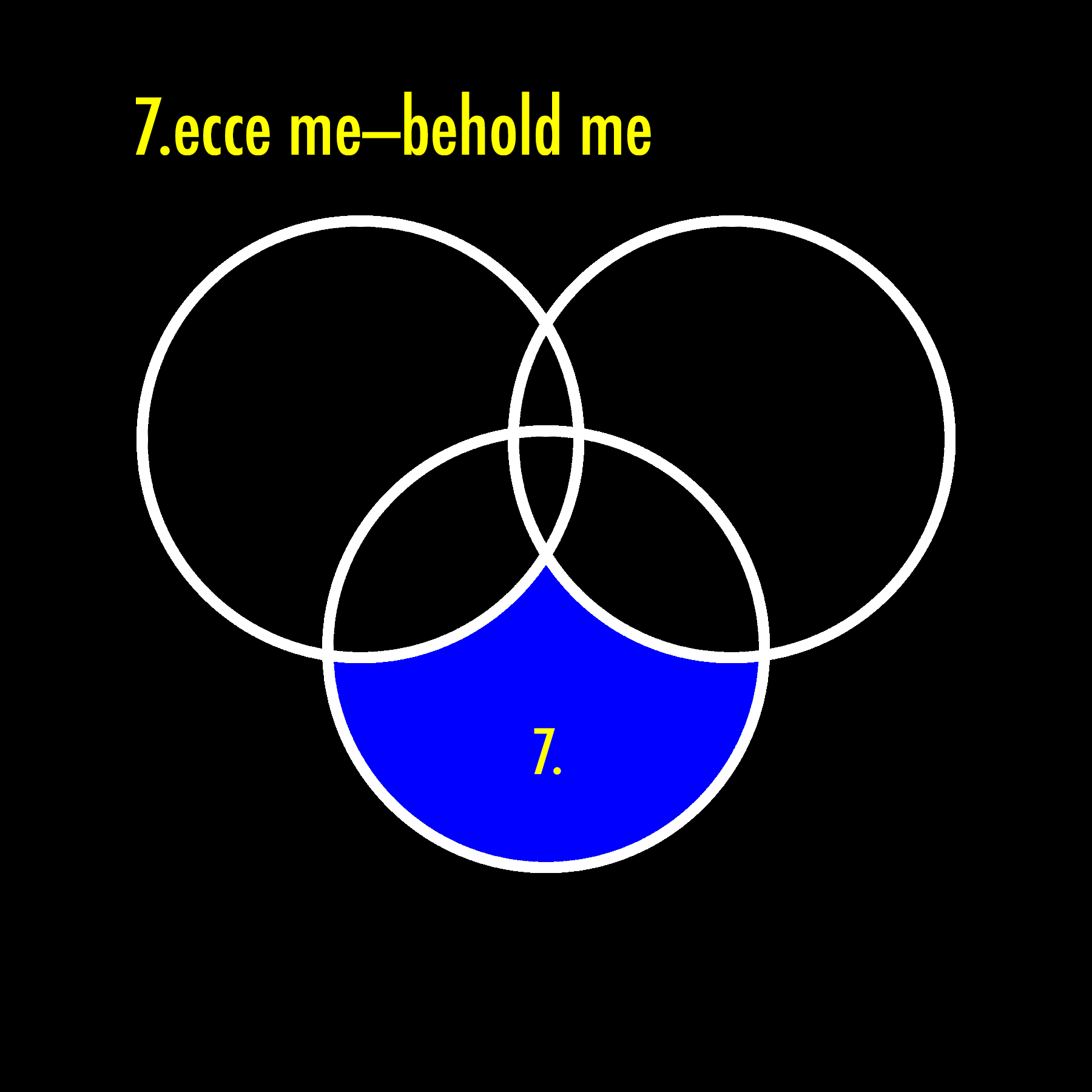
7.ecce me—behold me
Ecce Me (Behold Me)
Function
Ecce Me, meaning "Behold Me," represents the observable behaviors and actions generated by the Self. This part of the Self is concerned with how individuals express themselves and interact with the external world through their behaviors, choices, and actions. It is the most visible and outwardly directed aspect of the Self, reflecting internal processes and decisions.
Control System
Ecce Me is governed by the Locus of Control (L.o.C.), a psychological concept that refers to the degree to which individuals believe they can control events affecting them. In this context, L.o.C. influences how a person actualizes their intentions and interacts with their environment.
Role in Self
The role of Ecce Me in the Self is to serve as the actualizing force that brings internal states, intentions, and plans into the realm of observable behavior. It is through Ecce Me that the Self manifests in the world, impacting both the individual's life and the lives of others.
Organizing Principle
The organizing principle of Ecce Me is Behavioral. This principle emphasizes the importance of actions and observable behaviors in shaping identity and interacting with the environment. It encompasses a wide range of behavioral theories and practices.
Research Influences
Ecce Me is influenced by the work of notable psychologists and theorists:
B.F. Skinner (Behaviorism): Skinner's theories on behaviorism highlight the role of external stimuli and reinforcement in shaping behavior. His work underscores the importance of observable actions in understanding the Self.
John Bowlby (Attachment Theory): Bowlby's research on attachment theory explores how early relationships with caregivers influence behavior and emotional regulation. This influence is crucial for understanding how early experiences shape the observable aspects of the Self.
Venn Position
Ecce Me occupies the singular domain of circle C in the 7PartSelf Venn diagram. It is where the individual's internal stimuli (thoughts, feelings) and external stimuli (environment, social interactions) converge to produce observable behavior.
Boundaries Shared
Ecce Me shares boundaries with Internal Stimulus and External Stimulus. These boundaries highlight the interplay between the inner experiences of the Self and the external environment, emphasizing how both influence behavior.
Detailed Explanation
Ecce Me is the outward expression of the Self, where internal thoughts, emotions, and intentions become visible actions and behaviors. This part of the Self is crucial for social interaction, communication, and the implementation of personal goals and values.
Observable Behavior: The primary focus of Ecce Me is on actions that can be observed by others. This includes verbal communication, body language, facial expressions, and other forms of non-verbal communication.
Self-Expression: Through Ecce Me, individuals express their identity, beliefs, and values. This expression can take various forms, such as creative activities, professional achievements, social interactions, and daily habits.
Behavioral Consistency: Consistency in behavior helps to form a stable and recognizable identity. Ecce Me contributes to this consistency by translating internal states into predictable and coherent actions.
Adaptation and Change: While consistency is important, Ecce Me also allows for adaptation and change in behavior in response to new experiences, environments, and insights. This flexibility is essential for personal growth and development.
Integration with AI and Human Evolution
In the context of AI and human evolution, Ecce Me can be enhanced and better understood through the integration of advanced technologies. AI can help analyze and interpret behavioral patterns, providing insights into how individuals express their identities and interact with their environments.
Behavioral Analysis: AI can process large amounts of data on human behavior, identifying patterns and predicting future actions. This can be used to create personalized feedback and support systems that help individuals align their behaviors with their goals and values.
Self-Improvement Tools: AI-powered tools can assist individuals in modifying their behaviors to achieve desired outcomes. This can include habit-tracking apps, virtual coaches, and interactive simulations that provide real-time feedback and guidance.
Enhanced Communication: AI technologies, such as natural language processing and emotion recognition, can improve human communication by providing deeper insights into verbal and non-verbal cues. This can enhance understanding and empathy in social interactions.
By integrating AI with the understanding of Ecce Me, individuals can gain greater control over their behaviors, leading to more intentional and fulfilling lives. This integration fosters a more harmonious development of the human Self, aligning internal experiences with external expressions in meaningful ways.


